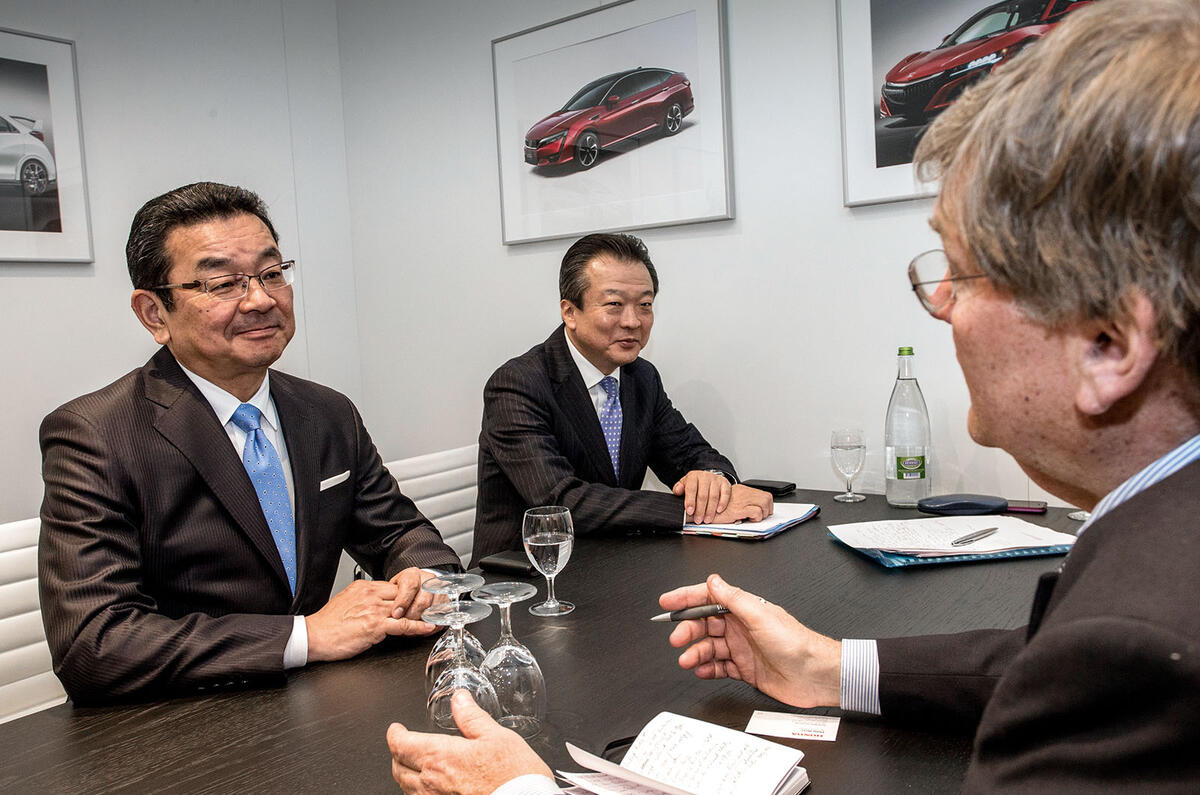In the nine months since Takahiro Hachigo, 55-year-old Honda ‘lifer’ and senior engineer, was unexpectedly appointed president and CEO, good fortune and tough challenges have crowded his agenda in equal measure.
In Europe, Honda is doing better than for many years as new models (which Hachigo oversaw as R&D boss in Europe) promise to drive 2016 volume past 160,000 cars and towards a 200,000-unit target. In January and February, sales in Europe climbed by a third.
Farther afield, quality issues, some poorly resolved US models and inward-looking management mean Honda has failed to capitalise on Toyota’s recent troubles and is in danger of conceding sixth place among world car makers to Nissan.
Through it all, Hachigo, with his engineer’s eye, looks to a day 30 years from now when Honda’s hydrogen fuel cell and pure EVs will be “dominant”. Here, in an exclusive interview, he reveals his view of the future.
Honda used to be described as the world’s greatest maker of engines. What are its priorities now?
“We are still making very advanced engines and will continue to do so for some time to come. As an example, we have developed a new range of downsized 1.0-litre and 1.5-litre turbocharged engines that will sell in our cars throughout the world. But we are also working hard on all other important technologies, concentrating especially on electrification, which will become a core Honda technology.
What kinds of electrification do you favour? Do you believe hydrogen fuel cell vehicles, such as your Clarity FCV, can ever suit the mass market?
Building zero-emission vehicles is our ultimate goal, both fuel cell vehicles and pure electric vehicles. But we still have important technical issues and infrastructure problems to overcome with both. In the meantime, we think the plug-in hybrid will become the mainstream.
How long do you believe that the plug-in hybrid electric vehicle period will last? Two or three model cycles?
This period will be highly dependent on technical progress with fuel cell vehicles, with the development of a [hydrogen] fuelling infrastructure and, of course, the cost of these things. We see the PHEV as a necessary step but not the goal.
Your rival Toyota talks of hydrogen FCVs as it once talked of its Prius hybrid, which now sells in millions. Do you feel the same?
Yes, we hope FCVs will spread around the world as quickly as possible, but to do that they must progress on two fronts — with the way electric power is used to propel cars and in finding an efficient source to generate and distribute the hydrogen.








Join the debate
Add your comment
Exlpoit rich hipsters
Hmmmm....
They we're killed because of solid state storage, high bandwidth internet and forward thinking entrepreneurs (Napster et al).
Hydrogen cars are the Sony Minidisc of the automotive market.
Solid state storage is improving battery technology. Higher bandwidth is charging technologies and station networks. The entrepreneur is Elon Musk.
Hydrogen - too little too late - EV technology developed too fast for it.
Merod wrote: Anyone remember
What about roller blades?
You can take that to the bank